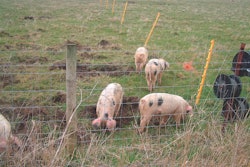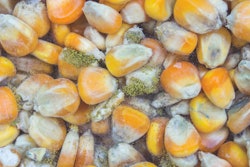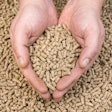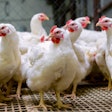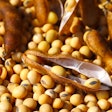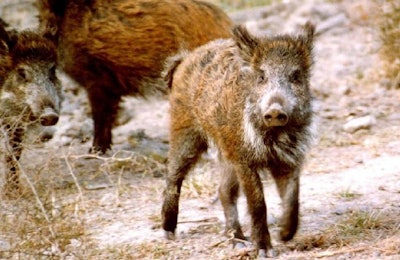
Two countries have officially reported their first cases of African swine fever over the past week — Greece and Sierra Leone.
First occurrence of African swine fever (ASF) has been confirmed in Greece. After one pig from a small herd died this month, the presence of the virus was confirmed. The remaining 31 animals — at a farm in the Central Macedonia region — have been destroyed, according to the national veterinary agency’s report to the World Organisation for Animal Health (OIE). Cleaning and disinfection of the premises is underway.
Source of the infection is unknown. However, the region shares a border with Bulgaria, where the disease has been circulating for several months, according to the latest situation assessment by the U.K. Department of Environment, Food and Rural Affairs (Defra). Furthermore, a 2019 ASF risk analysis found that Greece was among the European states “very likely” to become infected with ASF at some time this year.
Perhaps in response to suspicions over ASF cases, Greek authorities had recently begun surveillance programs for its wild and domestic pig populations.
New outbreaks in domestic pigs in Moldova, Romania
Also reporting new cases of ASF in domestic pigs was the Republic of Moldova. The virus was detected in a backyard herd of 21 pigs in the district of Hincesti, according to the official report to the OIE from the country’s animal health agency. One animal died. Located in the west of the Republic, Hincesti shares a border with Romania, but the outbreak appears to be some distance away from the frontier.
Just last month, Moldova declared the ASF situation in Hincesti “resolved” to the OIE in a move that now seems to have been premature. The declaration came after three outbreaks of the disease among the district’s smallholders during November.
There have also been nine new outbreaks among backyard herds in Romania. According to the veterinary authority’s latest report to OIE, these have occurred since January 24, and affected a total of 74 pigs across the south of the country.
Up to February 12, there have been 122 confirmed outbreaks of ASF among domestic pigs in Europe since the start of 2020, according to the European Commission (EC). The total has risen by 24 since the previous week. From this source, worst affected has been Romania (111 outbreaks). Bulgaria has reported nine outbreaks, and there has been one in Ukraine.
Africa: Sierra Leone reports first ASF cases
The West African state of Sierra Leone is the first to report ASF this year.
In the first occurrence of the disease in the country, almost 11,000 pigs were affected in a cluster of outbreaks in the Western Area. The agriculture ministry has informed the OIE that just over 600 pigs died as result of the disease between September and December 2019.
Source of the infection is uncertain, but may have been from carcasses washed up on beaches where the free-ranging pigs scavenge for food.
In 2019, five African states reported cases of ASF to the OIE — Côte d’Ivoire (Ivory Coast), Ghana, Kenya, South Africa and Zimbabwe.
New cases among European wild boar
At 110, Romania’s animal health agency has reported the highest number of ASF cases in wild boar to the OIE over the past week. Hungary has 95, Moldova 26, Latvia 11 and Russia 8.
This year, there have been 1,512 confirmed outbreaks of ASF among European wild boar up to February 12, according to the EC. This represents an increase of 347 over a period of one week.
Hungary has recorded the most outbreaks — 514 — which is a jump of 149 from the previous week. Other states to have confirmed ASF outbreaks to the EC so far this year are Poland (493), Romania (207), Bulgaria (132), Latvia (55), Lithuania (43) and Italy (30). Belgium, Estonia, Serbia, Slovakia and Ukraine have each reported fewer than 20 outbreaks in 2020. EC figures do not include Moldova or Russia.
View our continuing coverage of the global African swine fever situation.

